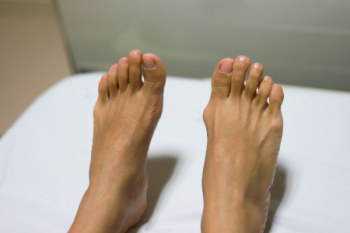
Bunions, or hallux valgus, vary in severity and presentation, each impacting foot health differently. Mild bunions appear as a slight deviation of the big toe, causing minimal discomfort and manageable skin irritation. Moderate bunions involve more noticeable toe misalignment, leading to increased pain and difficulty with footwear. Severe bunions show significant toe deformity, often resulting in chronic pain and restricted movement. Skin irritation is common, with calluses forming due to friction. Hallux limitus, a related condition, restricts the big toe's range of motion and can accompany bunions. Additionally, bunionettes, or tailor's bunions, appear on the little toe's side and present similar issues. Pediatric bunions, though less common, can occur in children and may require early intervention to prevent progression. If you have developed any type of bunion, it is suggested that you consult a podiatrist who can help you to manage this condition.
If you are suffering from bunion pain, contact one of our podiatrists of Tri-Town Podiatry. Our doctors can provide the care you need to keep you pain-free and on your feet.
What Is a Bunion?
Bunions are painful bony bumps that usually develop on the inside of the foot at the joint of the big toe. As the deformity increases over time, it may become painful to walk and wear shoes. Women are more likely to exacerbate existing bunions since they often wear tight, narrow shoes that shift their toes together. Bunion pain can be relieved by wearing wider shoes with enough room for the toes.
Causes
- Genetics – some people inherit feet that are more prone to bunion development
- Inflammatory Conditions - rheumatoid arthritis and polio may cause bunion development
Symptoms
- Redness and inflammation
- Pain and tenderness
- Callus or corns on the bump
- Restricted motion in the big toe
In order to diagnose your bunion, your podiatrist may ask about your medical history, symptoms, and general health. Your doctor might also order an x-ray to take a closer look at your feet. Nonsurgical treatment options include orthotics, padding, icing, changes in footwear, and medication. If nonsurgical treatments don’t alleviate your bunion pain, surgery may be necessary.
If you have any questions, please feel free to contact our offices located in Arlington, and Canton, MA . We offer the newest diagnostic and treatment technologies for all your foot care needs.
